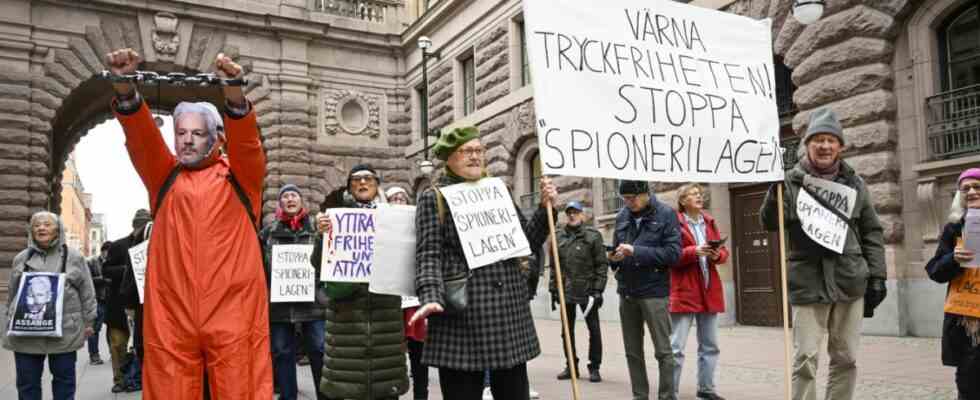The Swedish parliament passed several constitutional amendments on Wednesday evening. From January 1 next year, freedom of assembly can be restricted for groups involved in or supporting terrorism. Espionage abroad is criminalized, and the freedom to pass on secret information about Sweden’s international cooperation to the media is restricted.
Several media outlets had warned before the vote that the proposed law threatened democracy and freedom of expression. The Swedish section of the International Judicial Commission (IJC) wrote that the law will have an intimidating effect on whistleblowers and other key sources for investigative journalists. The daily newspaper Days Nyheter published a list of important international topics on which reports can actually no longer be made under the new law.
Spongy formulations
In the parliamentary debate ahead of the vote, Jessica Wetterling, MP for the Left, argued that the new law creates enormous uncertainty about what can and cannot be published. She criticized the fact that it will be punishable in future to provide information that “could harm” Sweden’s relationship with other states or organizations such as NATO or the UN. In the bill, this is worded just as vaguely as the restriction that providing such information does not constitute a criminal offense if it is “justifiable according to the purpose and the other circumstances”.
Ahead of the parliamentary vote, Prime Minister Ulf Kristersson defended the changes as necessary to improve Sweden’s ability to cooperate internationally, stressing that “it is expressly stated in the law that it is not about restricting the work of journalists”.
Other critics of the law changes say they are a kneel to the Turkish president. Recep Tayyip Erdoğan only wants to agree to Sweden joining NATO if Sweden takes tougher action against the Kurdish workers’ organization PKK and the Kurdish militia YPG. Sweden submitted an application for membership in the spring, and apart from Hungary and Turkey all member countries have ratified this application.
Print from Turkey
Sweden has had relatively liberal anti-terror laws to protect freedom of assembly. So far, charges of simply being a member of a group suspected of having terrorist connections have not been admissible.
During a visit to Turkey last week, Kristersson described the forthcoming constitutional amendment as a “big step” in the fight against crime. The Turkish parliament speaker Mustafa Şentop had previously said that Sweden had “many steps to go” before Turkey’s NATO application could be approved.
Şentop claimed terrorists could continue to conduct “propaganda, financing and recruitment activities” in Sweden and that no progress had been made regarding Turkey’s extradition requests. Erdoğan, who had said before the meeting that Sweden was a “hotbed of terror”, repeated in the joint press conference with Kristersson that Sweden first had to extradite “terrorists”.
On Wednesday evening, 278 of Sweden’s 349 MPs voted in favor of the amendment, only the Swedish Left Party and the Greens voted against. Since the law entails an amendment to the constitution, Parliament must vote on it twice. A majority had already voted in favor of it in the spring, although the Liberals had spoken out against the law at the time. Now that they are part of the new government, they voted for it. The constitutional amendment will come into force at the turn of the year.

